
Delias is a genus of butterflies. There are about 250 species of the genus Delias, found in South Asia and Australia. The genus is considered to have its evolutionary origins in the Australian region.

James John Joicey FES was an English amateur entomologist, who assembled an extensive collection of Lepidoptera in his private research museum, called the Hill Museum, in Witley, Surrey. His collection, 40 years in the making, was considered to have been the second largest in the world held privately and to have numbered over 1.5 million specimens. Joicey was a fellow of the Zoological Society of London, the Royal Geographical Society, the Royal Entomological Society, the Royal Horticultural Society, and the Linnean Society of London.

George Talbot FES was an English entomologist who specialised in butterflies. He wrote about 150 scientific papers, the majority being primarily systematic, consisting of the description of new species or the revision of various genera. He was also responsible for the curation and preservation of the Joicey collection of Lepidoptera prior to its accession by the Natural History Museum.
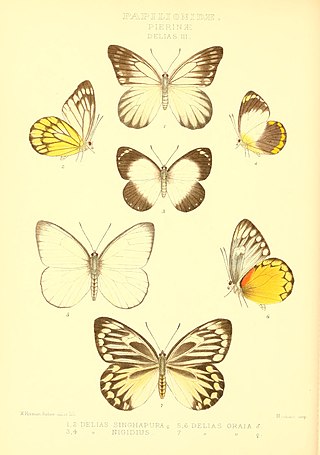
Delias ennia, the yellow-banded Jezebel, is a butterfly in the family Pieridae. It is found in Australia, Indonesia, Papua New Guinea and several surrounding islands.
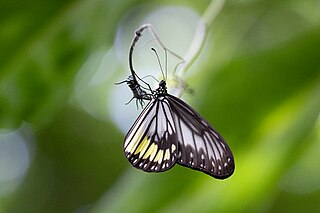
Ideopsis vitrea, the Blanchard's wood nymph, is a butterfly of the family Nymphalidae. It is found on Sulawesi, the Moluccas and New Guinea.
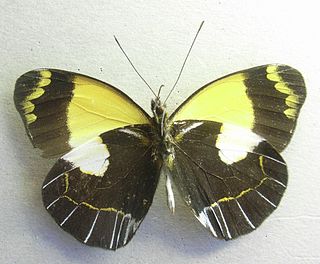
Delias meeki is a butterfly from the family Pieridae. It occurs in seven subspecies in New Guinea. The specific name commemorates English naturalist Albert Stewart Meek who collected the type series in May 1903 at Owgarra north of head of the Aroa River in Papua New Guinea. It forms a species group with the sympatric species Delias niepelti

Delias geraldina is a butterfly in the family Pieridae. It was described by Henley Grose-Smith in 1894. It is found in the Australasian realm where it is endemic to New Guinea.

Delias hypomelas is a butterfly in the family Pieridae. It was described by Walter Rothschild and Karl Jordan in 1907. It is endemic to New Guinea. It has a white form named "argentata"

Delias iltis is a butterfly in the family Pieridae. It was described by Carl Ribbe in 1900. It is endemic to New Guinea.

Delias isocharis is a butterfly in the family Pieridae. It was described by Walter Rothschild and Karl Jordan in 1907. It is endemic to New Guinea.

Delias ligata is a species of butterfly in the family Pieridae. It was first described by Walter Rothschild in 1904 and is endemic to New Guinea.
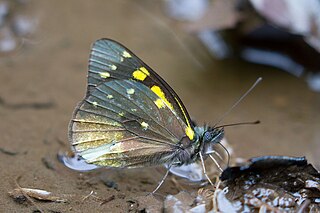
Delias microsticha is a butterfly in the family Pieridae. It was described by Walter Rothschild in 1904. It is endemic to New Guinea.

Delias nais is a butterfly in the family Pieridae. It was described by Karl Jordan in 1912. It is endemic to New Guinea.

Delias ladas is a butterfly in the family Pieridae. It was described by Henley Grose-Smith in 1894. It is endemic to New Guinea.

Delias kummeri is a butterfly in the family Pieridae. It was described by Carl Ribbe in 1900. It is found in New Guinea.

Delias enniana is a butterfly in the family Pieridae. It was described by Charles Oberthür in 1880. It is found in New Guinea.

Delias albertisi is a species of butterfly in the family Pieridae. It was first described by Charles Oberthür in 1880 and is found in New Guinea.
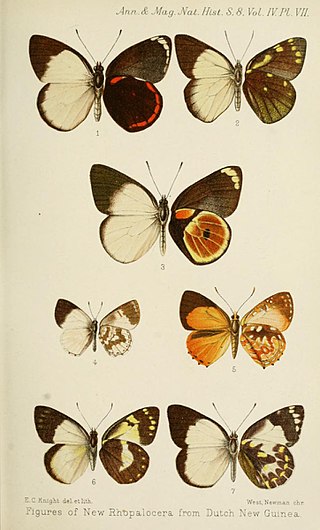
Delias caroli is a butterfly in the family Pieridae. It was described by George Hamilton Kenrick in 1909. It is found in New Guinea.

















